We announced a few days ago that, in the voting that took place in Chengdu, Tolosa was the city chosen to host the UNIMA Congress in 2016. However, it was not known until the last day which was the city chosen to hold the Council Meeting, – an event which UNIMA celebrates two years after each Congress -, in 2014. Sofia in Bulgaria, and Matanzas in Cuba were the candidate cities. The option chosen, by the new Executive Committee, was Matanzas, Cuba.
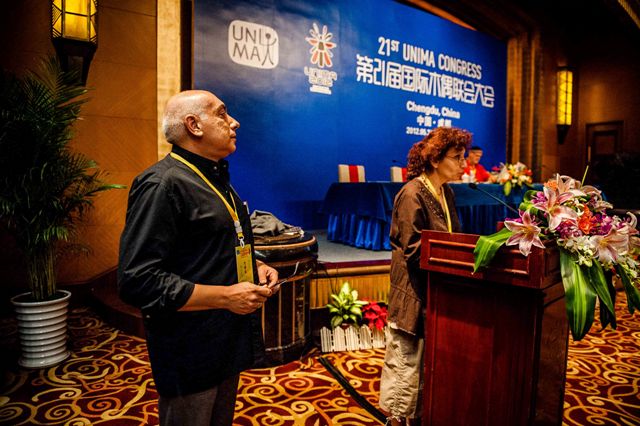
Ivan Raykov during the presentation of the candidacy of Sofia, Bulgaria. Photo Jim Tobia
These decisions, of little relevance to those who are unaware of the inner workings of UNIMA, are actually very important, especially for those cities vying to host the respective events. We already recounted how the Tolosa-San Sebastian option, which must be credited to the tandem Miguel Arretxe-Idoya Otegui who have led the Titirijai Festival for years and have created the fabulous TOPIC, beat Ekaterinburg; this caused great disappointment to the Russians who had made an immense effort in the hope of having their city chosen.
The same happened again with the election of Cuba over the candidacy of Sofia. The Bulgarians had pinned all their hopes in the celebration of this event which would have been very important to them, eager as they are to consolidate the succesful reorganisation of their important theatrical infrastructures, following the transition which led them from Communism to the European Union. Furthermore, Bulgaria will be celebrating the fiftieth anniversary of its membership of UNIMA next year.
For Cuba,too, of course, this election was vital, given the present period of change and openness on the island, and of consolidation of its current, propitious moment for puppetry, with a profusion of theatres and new, high-quality companies across the country.
I think that in this important Chengdu Congress, we saw a reflection of geopolitical shifts that are taking place in the world, which also affect alliances and influence among UNIMA’s member countries. It could not be otherwise, given that this is a global organisation with a large majority of countries represented.
The emergence of the “peripheral world,” until recently integrated into what was called the Third World, with countries in the vanguard such as Brazil, Mexico, China, India and South Africa, pulling behind them the different continental regions, coincides with a certain decline in Europe, plunged into deep economic and political crisis, and with a degree of stagnation of the United States. The Congress of Chengdu was a clear example of this new global reality, which directly affects puppetry as we saw in the impressive array of means, traditions, and virtuoso displays by the Chinese companies attending the Festival. City officials were deeply involved in the organisation of these events, desirious to communicate this reality to the world and to promote a cultural and artistic heritage that will help them define their identity and export an image of originality and creativity throughout the world. No expense or effort were spared, and the results were grandiose, especially in the opening and closing ceremonies, as spectacular and impressive as could be.
In this sense, China has set a curious and interesting precedent, which it will be difficult for other countries to match, but which will certainly condition future Congresses, either because of the desire to emulate or, conversely, to distance themselves in the development of other creative possibilities.
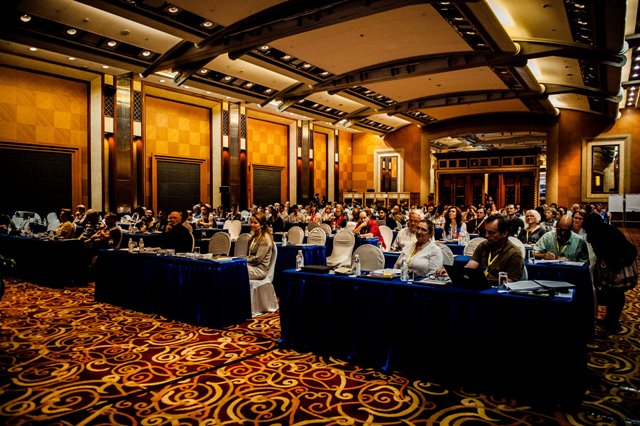
Unima Assembly in Chengdu. Photo Jim Tobias
In Chengdu we saw how, in the world of puppetry, the Eurocentrism prevalent until recently has been substituted by the new geopolitical realities in which the peripheral and emergent push forward as they occupy their own place. We also saw a certain leaning of the French and Anglo-Saxon world towards the Latin American area, in search of a counterweight to the enormous Asian power which emerged in Chengdu with volcanic strength, and which will certainly influence the future of puppetry. For the first time a Council Meeting and a Congress will be held in Spanish-speaking countries, demonstrating the attraction of the Latin American world in general, in spite of the variety and different outlooks that persist between these countries and their puppeteers within UNIMA.
In my view, it is this geopolitical shift that frustrated the hopes of Russia and Bulgaria, two countries with enormous puppet traditions, yet which are trapped by the historic pincers of world geopolitics. These are facts that occur, obviously, in regions of the collective unconscious, which is where such processes of change in individual decision-making take place.
Great opportunity for Cuba and Latin America
The next four years will be very important for the consolidation of puppetry as an art form in Ibero-America and the Latin countries in general, in terms of organisation and infrastructure. This will be the case given the coincidence of these two events, one after the other, and will, we believe, establish a “before and after” in the two countries and their regions.
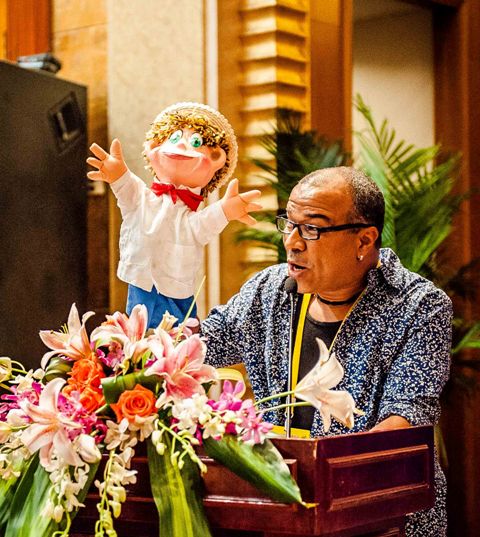
Rubén Darío in the presentation of the candidacy of Matanzas, Cuba. Photo Jim Tobias.
Cuba will face the challenge of organising an international event in which those taking part are highly demanding when it comes to evaluating and controling all the details of the Council Meeeting, from the infrastructures available to the Council members attending (transport, accommodation, communications, Internet, opportunities for fraternising between puppeteers and Council members, etc.) to drawing up an attractive and impressive international programme.
At the same time, it will provide a great opportunity for Cuba to reinvent, in the puppet world, its great symbolic potential as a bridge-island between the Americas of the North and the Americas of the South, and between them and EurAsia and Africa. Furthermore, as well as the weight of the strong relationship that Cuba had in the past with Europe and the United States, in its favour is the fact that it is a member of the Unima North American Comission – a decision of great strategic and symbolic value for all parties. All involved will want to be linked with the impressive puppet developments in Brasil, and of course in Mexico and Argentina, which pull in their wake the other countries of the region. In this sense, the world of puppetry has the ability to open up unexpected channels of creativity and artistic communication in the region, channels that will be very useful for everyone involved in this language of languages that puppets represent.
As for Tolosa, the organisers will face the challenge of inventing a Congress that can compete with what we saw in Chengdu, but from a completely different angle. To every culture, its language and style. In China, the collective is what is considered most important, and the union of parts creates strength. In Spain, the country of the so-called regional autonomies, – some of which nurture ambitions of independence -, freedom on a small scale favouring regional differences is what carries most weight; here the exaltation of distinctions creates wealth and empowers culture. China, a country of great collective achievements. Spain, a country of great individual achievements. Two extremes which, nevertheless, touch and need one another because if the group grows too large it will eventually collapse, either through the rebellion of people who are being suffocated or by stagnation for lack of creativity. And equally, without the collective coordination of differences, chaos and disintegration will ensue. I think these events, Chengdu and Tolosa, one following the other, have the potential to create two interesting models which will be radically different from each other and, as result, highly complementary.


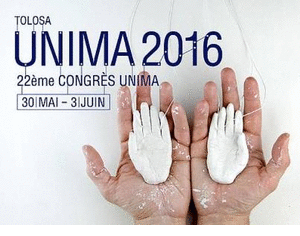
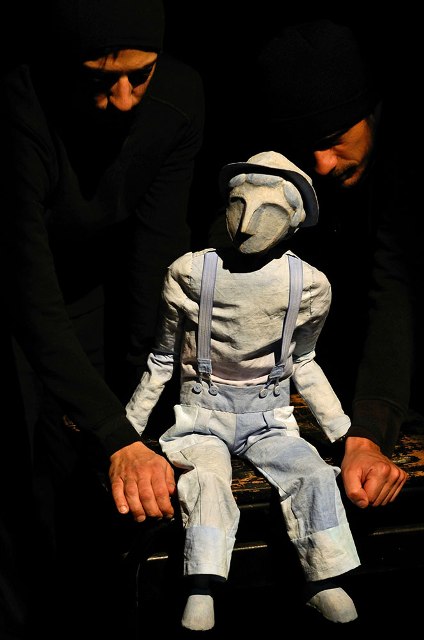
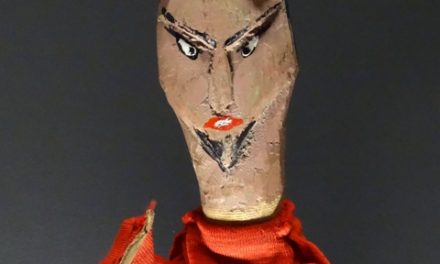








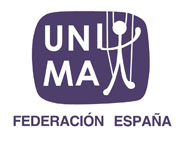
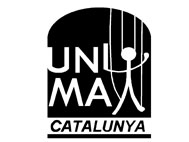


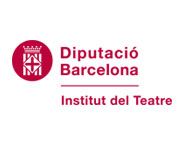






I would like to be with Unima in Tolosa. Such a great event in Kuba.
Best regards Linde Scheringer